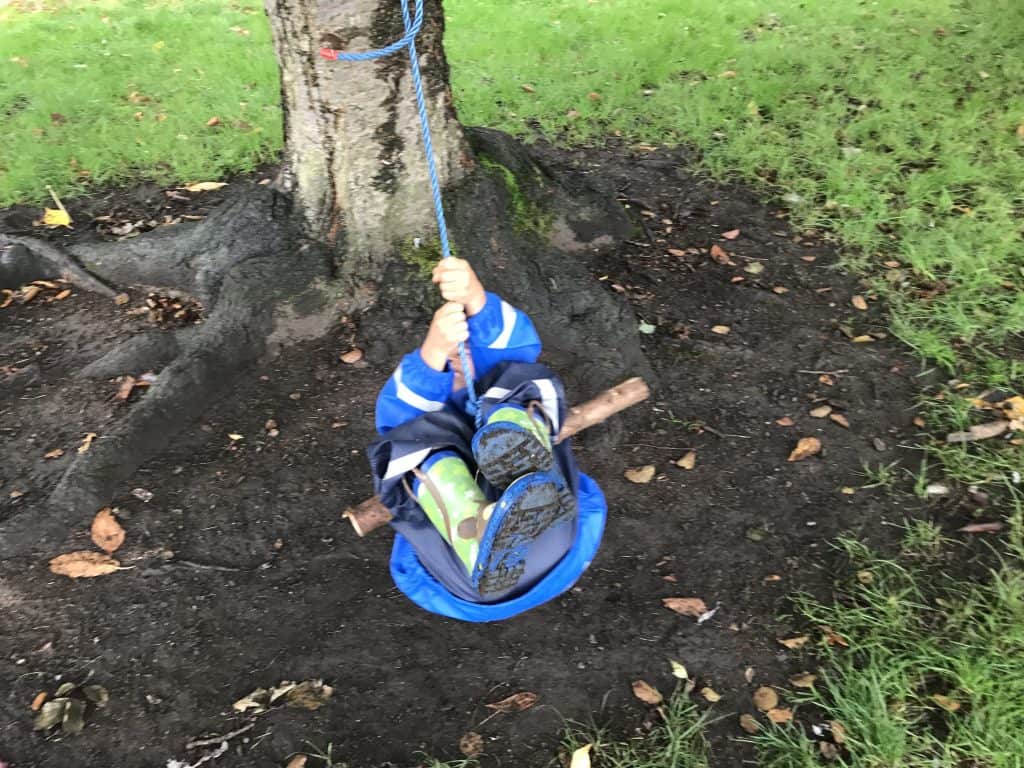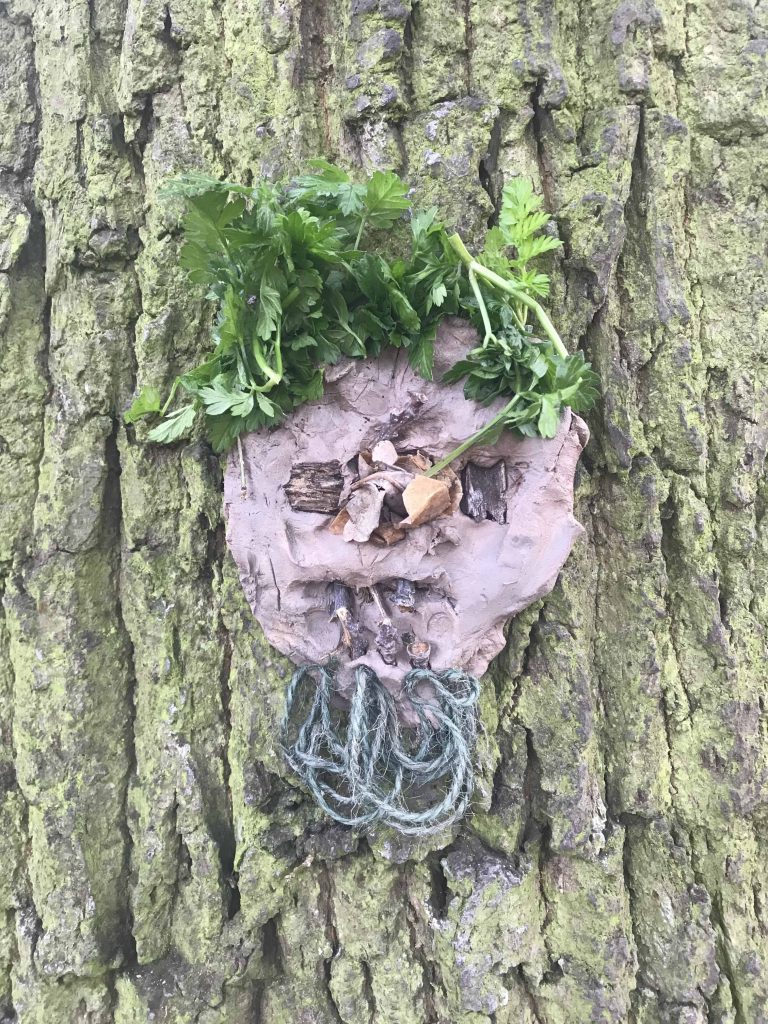The benefits of attending a regular forest school outdoors in nature are numerous. From developing motor skills to promoting positive mental health outcomes here are 10 benefits of Forest school:

- DEVELOPMENT OF COLLABORATIVE LEARNING SKILLS. Through a variety of outdoor activities children learn to work and collaborate with others. This may be in mixed age and ability groups which makes the collaboration even more beneficial. Building a den with others, collecting wood for a fire all involve communication and working harmoniously in a team
- RISK TAKING. In the age of helicopter parenting allowing kids to take risks helps promote confidence and self-esteem. Forest school practitioners are there to make sure kids are safe and to manage the environment so that risks are taken appropriately. Whether it’s climbing a challenging tree or using real life tools – kids will make decisions for themselves and will be safely and ably supported.
- RESILIENCE. The nature of some forest school activities requires much patience and concentration. With today’s children having very short attention spans such activities are invaluable. I observed the kids using a flint and stone at one particular session to light a ball of cotton as they started to learn fire lighting skills. It’s not an exaggeration to say it took some of them up to fifteen minutes to get the spark to light the cotton ball. Bearing in mind that most of them were between 4-10 years old this isn’t a surprise. What was amazing though, was watching them try and try again. Some took a break and returned to try again but none of them gave up – they all left that session having lit a cotton ball. The sense of achievement on their faces was a sight to behold.
- MULTI-DISCIPLINE CURRICULUM. Forest school activities will, by their nature, cover multiple areas of an educational curriculum. It is able to complement what may be going on in the classroom but will also develop many skills that are difficult to teach in a classroom environment. So looking at plant and animal life will complement the science curriculum. Weather patterns and seasons fall under geography. Physical activities and games will complement PE and wild/natural art will do the same for Art sessions.
- DEVELOPMENT OF FINE AND GROSS MOTOR SKILLS. Acquiring fine and gross motor skills is vital for a child’s development and independence. This happens at forest school when the kids are den-building, or making dream-catchers and threading beads. Climbing trees and playing hide and seek also add to the development of these vital skills which allows them to explore their surroundings and improve their cognitive development.
- INCREASE IN SELF-ESTEEM AND SELF-CONFIDENCE. All of the activities on offer at Forest school are designed to offer all the children opportunities to develop self-confidence and self-esteem through their hands-on learning in an outdoor environment. These are all child-led which allows the individual learner to decide how much of an activity they want and how far they would like to take it. It is inclusive and allows for unique and valuable learning experiences. There is no ‘one-size fits all’ at forest school thankfully.
- CONNECTING WITH NATURE. Children will not appreciate and understand that which they do not know. If we want our grandchildren to enjoy the outdoors and nature we must teach our children how to take care of it. Taking care of it means valuing and understanding it. Which naturally means spending time in it and getting to know it. Spending meaningful and quality time in nature allows children to take ownership and love for the woods and natural environment. Attending a regular forest school will allow for a deep and meaningful relationship to develop between the child and nature.
- POSITIVE MENTAL HEALTH OUTCOMES. The benefits of being outdoors are pretty well documented. Spending even as little as 20 minutes a day will help make you happier according to a study by the international journal of environmental health and recently published research in Denmark showed that the more green space a child was exposed to up until the age of 10, the lower his or her risk for 16 mental disorders they looked at. So basically this study found that children under 10 who had greater access to green space had 55% less risk of mental health disorders in adulthood . We all need to be spending more time outdoors in green spaces on a regular basis.
- PHYSICAL ACTIVITY. Every parent knows that kids can’t sit still. They’re not designed to sit still for long periods of time yet time and again adults expect that of them. They’re bursting with energy and are curious beings who want to move around exploring, pushing boundaries and learning as they go. Forest school activities and ethos allows them to do this without the pressure of time constraints or the dreaded adult regulatory gaze. They keep active and develop gross motor skills along the way.
- WORKING WITH REAL TOOLS. Under the supervision of Forest school instructors kids are allowed to use whittling knives, hand drills, saws and other such tools. This gives them confidence and allows then to develop useful skills in a safe and controlled environment. Forest school instructors will carry out risk assessments and safety talks before handing out tools. All necessary safety precautions are taken and safety wear is also provided.
